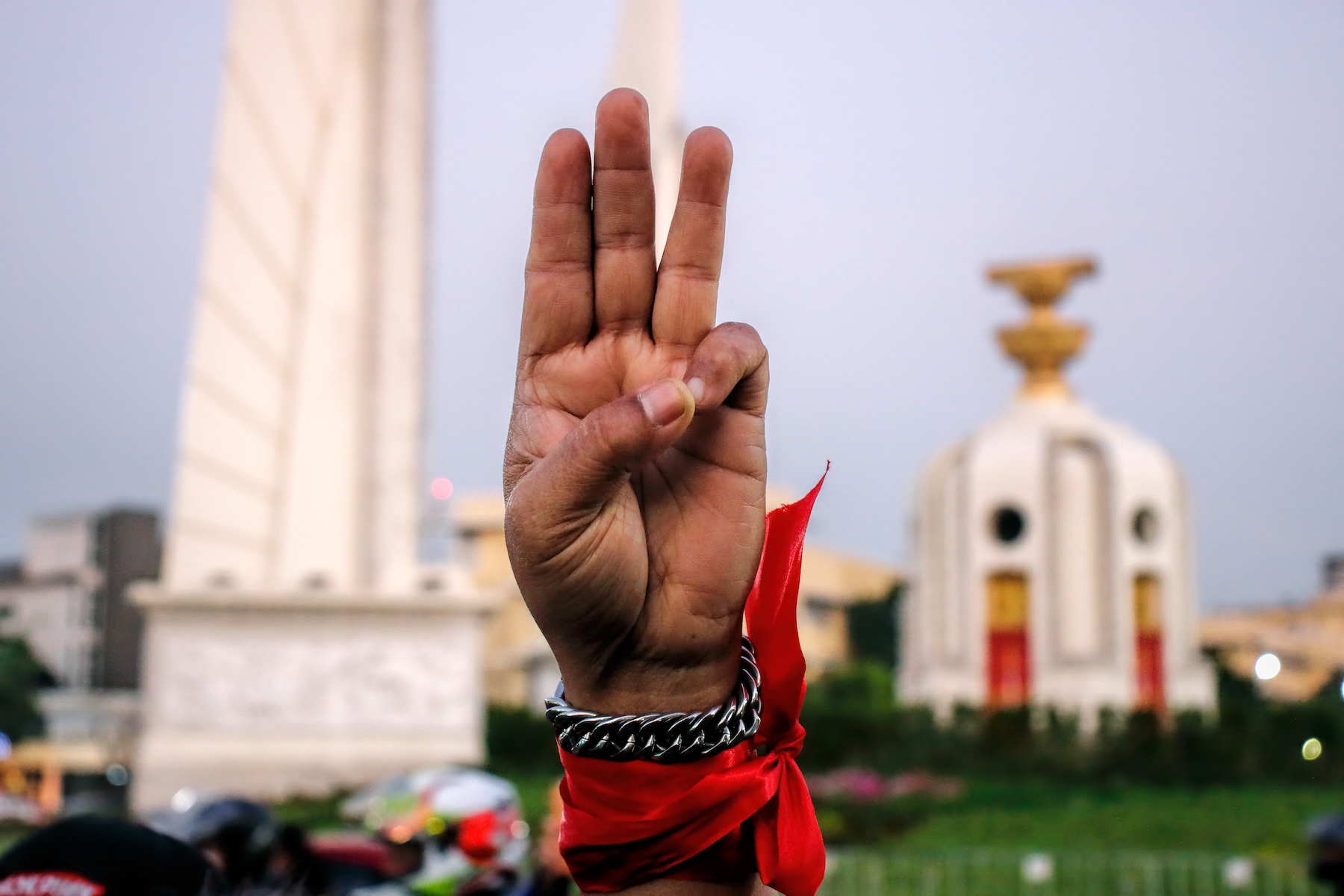Thailand’s employment law protects labor standards and the rights of workers. It also regulates the employer-employee relationship, which is good news if you are moving there for work.
In 2021, the Thai government also introduced several new incentives to attract professionals, foreign investors, and retirees in the wake of the COVID-19 pandemic. This is expected to boost the economy by ฿1 trillion within the next five years. Needless to say, there are more and more reasons to call Thailand home.
If you are considering applying for a job in Thailand, this article offers an overview of the country’s labor law, including the following:
- Overview of labor law in Thailand
- Foreign workers: your right to work in Thailand
- Employment contracts in Thailand
- Wages and salary in Thailand
- Working hours
- Paid leave in Thailand
- Parental rights in Thailand
- Social security in Thailand
- Protection from discrimination at work
- How can you join a union in Thailand?
- Training and development in Thailand
- Terminating the employment relationship
- Company mergers and insolvencies
- Temporary, part-time, agency, and informal workers
- How can you make a complaint as a worker in Thailand?
- Useful resources
Sirelo
It’s no secret that moving abroad can be stressful. Sirelo’s team of removal advisers is here to help. They provide five free quotes from international shipping companies so you can find the best options at the best prices. Take the stress out of your relocation to Thailand with Sirelo.
Overview of labor law in Thailand
Thailand’s labor law is comprehensive and regulates various aspects of employment relationships.
The Labor Protection Act is key legislation that covers areas such as minimum wage, working hours, and employee benefits. It also mandates a standard 48-hour workweek with overtime pay.

Although Thailand’s Constitution contains provisions that protect the rights and interests of employees, the country scores just below the regional average in Southeast Asia (62.33), with 62 out of 100 on the Labour Rights Index 2022. The Index covers 135 economies and focuses on the working lifespan of a worker.

Local expert
Jane Evans
By law, employers must provide paid leave, maternity leave, and severance pay to employees. They must also follow strict termination procedures. Thailand’s labor law also seeks to protect employees’ rights and ensure fair working conditions across different industries.
Foreign workers: your right to work in Thailand
Generally speaking, foreign nationals must obtain a work permit in order to legally take up work. Thailand’s labor law has specific regulations that govern the employment of foreigners. These are also updated from time to time.
Here are some key regulations to be aware of:
- Most foreign nationals, including expats and migrant workers, must obtain a work permit to work legally in Thailand. The Department of Employment, under the Ministry of Labor, issues these permits.
- There are different types of work permits for different categories of employment, such as foreign experts, skilled labor, and others.
- The specific type of work permit required may vary depending on the nature of the work and the individual’s qualifications.
- Thailand categorizes foreign employees into different groups, including experts, skilled workers, and unskilled workers, each with specific eligibility criteria.
- Employment of foreign nationals is subject to quotas and restrictions, and not all jobs are open to foreign workers.
- In addition to a work permit, foreign employees usually need an appropriate visa to legally stay and work in Thailand.
- Employers are typically responsible for assisting foreign employees in obtaining work permits and complying with relevant regulations.
- Both employers and employees must ensure they comply with Thai labor and immigration laws. Non-compliance can lead to fines, deportation, or other legal consequences.
Following the COVID-19 pandemic, the Thai government relaxed laws around immigration, tax, and owning land and property to attract foreigners.
A new long-term resident visa was also introduced, allowing qualified applicants to live in Thailand for 10 years, along with their spouses and children. This includes the automatic issue of a work permit.
Employment contracts in Thailand
Employment contracts are essential for both employers and employees in Thailand, whether they are verbal or written. However, the latter is best for clearly laying out the terms and conditions of employment in case a dispute arises.

Types of employment contract
Thailand labor law dictates that there are two types of employment contracts: fixed-term (ระยะเวลาคงที่) and open-ended (สัญญาปลายเปิด).
- Fixed-term contract: This has a specific end date or duration and can apply for temporary or project-based work, including seasonal work
- Open-ended contract: This is a permanent employment contract, often referred to as an ‘unlimited duration contract’. It is the most common type of employment contract in Thailand. It does not have a specific end date and typically offers more job security to the employee.

Local expert
Jane Evans
It is important to be aware of the type of contract you are considering, as the rights associated with each differ immensely. Key provisions typically include details on working hours, wages, benefits, leave entitlements, and termination conditions.
A standard Thai contract should include:
- Date of contract
- Names of parties to the contract
- Commencement date of employment
- Expiry date (for fixed-term contracts)
- Probationary period
- Duties and responsibilities of the employee
- Wages, benefits, and welfare
- Security deposit/guarantee (if applicable)
- Working days, hours, and holidays
- Position and right to change position
- Workplace address/location
- Non-competition and non-solicitation
- Confidentiality/non-disclosure
- Intellectual property
- Reference to work rules and regulations
- Termination of employment
Breach of contract
Notably, there are two levels of breach of contract under the Thai labor protection law. One is grave misconduct, and the other is incompetence or failure to perform duties. Termination procedures depend on the regulations of each company but usually begin with a first warning letter issued by the employer.
You will need to refer to all of the relevant laws and regulations related to Thai labor law when exploring the effects and consequences of a breach. In this case, the Labor Protection Act B.E 2541 (1998) is the main piece of legislation, and the binding provision is in the Civil and Commercial Code.
Wages and salary in Thailand
Thailand’s minimum salary is set by the National Wage Committee, which consists of employees, employers, and government officials. The committee takes into consideration several key factors before proposing a new daily minimum wage. These include the cost of living index, annual inflation rate, and the price of goods and services, among other things.
The minimum wage differs per region and ranges from ฿337 to ฿400 per day.

The minimum wage is for one working day, which consists of eight hours of normal work and seven hours of work that may be harmful to the health and safety of the employee. Employers cannot pay workers wages below the prescribed rates, and violations are punishable by imprisonment, fine, or both.
Minimum overtime pay
The labor laws also stipulate overtime rates, for example:
| Type of overtime worked | Earning rate |
| Hours over the standard 8-hour workday | 150% of the regular rate |
| Working for up to 8 hours on holidays or days off | 200% of the regular rate |
| Working over 8 hours on holidays or days off | 300% of the regular rate |
That said, overtime is often unpaid and an expected part of the team culture. For example, when working as a teacher, there are weekends and holidays when teachers are expected to work extra without overtime or extra pay. Requesting a raise is generally not done.
Working hours
Although the standard full-time work week is 48 hours, the average work week in Thailand is actually only 29.1 hours.
According to Thai labor law, the maximum number of working hours should not exceed eight hours a day or 48 hours a week for a non-hazardous job. For work deemed hazardous, on the other hand, the standard working hours are seven hours per day and 42 hours per week.

Employers must make sure that employees get at least one hour of rest after five consecutive hours of work and a weekly holiday, which typically falls on a Sunday. Public holidays also apply, and employers must provide special pay rates for any work carried out during these holidays.
If an employee works beyond the standard hours, overtime pay applies.
Paid leave in Thailand
There are several types of paid leave in Thailand, including annual leave, maternity leave, sick leave, and business leave.
Holiday pay
According to Thai Labor Law, employees are entitled to a minimum of 13 statutory holidays per year. They may take at least six days of paid annual leave per year, not including public holidays. After one full year of consecutive work, they may also take an additional six days of annual leave.
Employers may provide annual leave on a pro-rata basis for employees who have not completed one year of service.
- Annual leave can carry over for up to two years
- Section 30 of Thailand’s Labor Protection Act (LPA) states that the employer must schedule (or ‘fix’) the employee’s annual paid leave time in advance
Sick pay
The leave entitlement for private employees in Thailand is 30 days of paid sick leave per year. Employees must provide a valid medical certificate if they take more than three consecutive days off work due to illness. If the employee is unable to produce a certificate, they must explain why. Employers may ask a physician to issue the certificate.
Business leave
Employees may apply for paid business leave, but not exceeding three working days per year.
In addition to paid time off, Thailand has 19 national public holidays. Most businesses close for these days. However, if you have to work on a public holiday, it is seen as overtime.

Other forms of paid leave
Depending on collective bargaining agreements, other forms of paid leave typically include:
- Educational leave: Employees in Thailand may take leave for training or to develop their knowledge and skills in line with the rules and procedures prescribed by the employer
- Marriage leave: Regular full-time employees may take up to three days of paid time off for their first legal marriage only. They must take this leave within six months of the marriage date. They must also supply documentary proof to support the leave application.
- Family events: Thailand does not have a specific leave policy for family events such as weddings, funerals, or other family-related events
Unpaid leave
If you cannot get paid leave for something, you might be able to take unpaid leave. However, as this is not a statutory benefit, it largely depends on individual employment contracts rather than labor laws in Thailand. The availability of unpaid leave is also subject to the employer’s discretion and the terms of the employment contract.
Parental rights in Thailand
What are your rights during pregnancy?
In Thailand, parental rights in the workplace include maternity and paternity leave. These are outlined in the Labor Protection Act and the Civil and Commercial Code.
When a female employee is pregnant, she must inform her employer about her pregnancy. She may ask her employer to adjust her work, either before or after childbirth, if she has a certificate from a qualified medical practitioner that states that she cannot perform her previous position.

Under Section 43 of the Labour Protection Act, employers cannot dismiss a female employee on the grounds of her pregnancy or until one year after giving birth. That is unless there is a just reason that is unrelated to the pregnancy or childcare.
Maternity leave
Female employees may take 98 days of maternity leave (การลาคลอด), including public holidays, following the birth of a child. Employers must also provide full pay to the mother for up to 45 days of maternity leave, and the Social Welfare Fund pays the balance.
Notably, this follows an amendment to the law in 2022 after women’s rights groups urged the Prime Minister to change it on International Women’s Day.
Paternity leave
Workers in the public sector may take 15 days of fully paid paternity leave (การลาพ่อ). This policy was extended to male government employees in June 2023. However, there is no mandatory paternity leave for private employees.
To be eligible for paternity leave, employees must notify their supervisor within 30 days after the delivery day. However, if the leave duration exceeds 30 days, the employee will not receive any payment unless authorized by a director-general or equivalent authority, and the payment will not exceed 15 days.
Parental leave
Currently, there is no provision for unpaid parental leave for self-employed workers or unemployed parents in Thailand. There are also no shared parental leave or unpaid parental leave policies.
Temporary changes to work duties
Thailand’s labor law also allows for temporary changes in a worker’s duties shortly before and after the child’s birth if a doctor’s certificate is provided.
Parents also have the right to request flexible working arrangements to balance their family responsibilities.

Returning to work after parental leave
The Labor Protection Act outlines the requirements for returning to work after parental leave.
Mothers on maternity leave may return to their previous job or a substantially similar one with the same employment conditions. However, if there have been any changes in your employment conditions during your leave, your employer must inform you of these upon your return, and you must give consent.
Some employers may offer flexible work arrangements to help new mothers balance their family and work responsibilities.
Employers should also provide breaks and facilities for breastfeeding or expressing milk. However, this may vary from workplace to workplace.
Notably, it is against Thailand’s labor law for employers to discriminate against new mothers due to pregnancy or maternity leave. Therefore, if you face such discrimination, you have legal recourse.
Social security in Thailand
The Social Security Office (SSO) oversees Thailand’s benefits system, which includes pensions, illness and injury benefits, and more.
All employees are required to contribute towards a social security fund. This equates to 5% of their salary each month, up to a maximum contribution of ฿750. Employers and the government are also required to contribute an equal amount.
When you start a job in Thailand, your employer is also responsible for enrolling you in the country’s unemployment insurance program. This provides financial assistance to workers who have lost their jobs due to economic reasons, such as business closures or downsizing.
Protection from discrimination at work
Thailand has legal protections against discrimination in the workplace. The country approved the Discrimination (Employment and Occupation) Convention, 1958 (No. 111) in 2017. This promotes equal opportunity by eliminating all forms of discrimination in employment and occupation.
Likewise, the 2015 Gender Equality Act and the 2008 Labor Protection Act protect women and LGBT+ employees from discrimination at work.

Trade unions are legally recognized and protected under Thai law. They have collective bargaining rights and can arrange strikes in some cases. Other types of employee-oriented organizations – such as employee committees, welfare committees, and labor federations – are also recognized.
Employers must seek the express and informed consent of each employee in connection with the collection, use, and/or dissemination of his or her personal data.
Contingent workers, such as independent contractors and consultants, are not specifically regulated in Thailand. The law of contracts under the Civil and Commercial Code governs the relationships between them and their employers.
How can you join a union in Thailand?
As mentioned, trade unions (สหภาพการค้า) are legally recognized in Thailand, and the right to join one is protected under Thai law. Therefore, workers are permitted to become members of and take part in trade union activities in the country.
Despite this, the unionization rate in the country is low, with data showing that only 2% of the workforce is organized into trade unions. This is partly due to workers facing anti-union discrimination from employers during the organizing process and industrial conflicts.
Employees also face challenges when it comes to exercising their rights to organize and engage in collective bargaining. This is due to restrictive laws, resistance from employers, and a lack of enforcement of workers’ rights.
Despite these obstacles, there are efforts to coordinate and collaborate for the success of worker rights and union representation in Thailand.
Training and development in Thailand
The government issued the Skill Development Promotion Act 2002 to stimulate and promote workplace training. This encourages enterprises to provide training and upgrade skills, knowledge, and competencies for employees and those who are not employees. It also aims to increase the employability and productivity of the workforce as a whole.

The Act requires companies that employ more than 100 employees to arrange skill development programs for at least 50% of their total staff.
Private businesses and educational institutions are also incentivized to provide apprenticeships and occupational skill training.
The Department of Skill Development is the main agency that delivers the public vocational training program in Thailand.
Terminating the employment relationship
Dismissal
The Thai Labour Protection Act regulates the termination of employment.
An employer is entitled to terminate an employee’s contract at its discretion. However, they must provide a 30-day written notice before dismissing an employee with their termination date the following month.
If the dismissal is made without a statutory cause, they can dismiss an employee immediately and provide their severance pay later. Notably, they are obligated to pay this to employees who have worked for them for more than 120 days, i.e., they have passed their probationary period.
If the employer wishes to terminate the employment contract during the probationary period, however, they must notify the employee before the end of this period.
Leaving a job voluntarily
Employees are entitled to leave their place of employment at any time as long as they give 30 days advance notice with a written resignation.
Redundancy
Under Thailand’s labor law and regulations, employers must follow several steps when making an employee redundant.

This typically involves notifying the labor inspector and providing a written dismissal notice to the affected employees at least 60 days in advance.
They must also make severance payments to those being terminated unless there is due cause for the termination.
Retirement
In 2017, new amendments were made to Thailand’s Labor Protection Act to address the potential economic and social burden of retiring workers in the country.
This includes a retirement regime for private sector employees, which places severance obligations on employers, enhances protection for employees, and creates a more effective framework for the enforcement of labor laws.
These changes have significantly changed the retirement process for employees in Thailand, as employees now have the right to receive statutory severance pay when they retire.
However, if an employee reaches the compulsory retirement age of 60 years and the employer has not set a retirement age, or the age set is over 60 years, the employee will be able to retire by duly informing the employer of the intention to cease working.
After 30 days, the retirement will become effective, with the employee being entitled to full severance pay in line with the provisions of the Act.
Company mergers and insolvencies
When a company merges with or transfers to another business, employees have certain protection and rights under Thailand’s labor law.
For instance, the transfer of employment, which constitutes a change of employer, is subject to the prior consent of each transferred employee, who must give it in writing.
If the employee consents to the transfer, the existing employer will have no post-transfer obligations to the employee, except for any liabilities that accrued before the transfer.
However, the Labor Protection Act states that all the rights an employee had with the previous employer are transferred to the new employer. The new employer is also obliged to accept all the rights and responsibilities owed to the transferred employees.
Temporary, part-time, agency, and informal workers
Temporary, part-time, and agency workers have the same basic employment rights as full-time and permanent workers in Thailand. This includes the right to an agreed minimum wage, holiday pay, sick pay, and protection against discrimination in the workplace.

However, these employees usually have different job contracts, such as fixed-term or agency worker contracts, which typically have different terms. For example, agency contracts normally don’t include a notice period.
The Labor Protection Act states that all employees (regardless of their employment status) are entitled to the minimum statutory rights, including benefits from the Social Securities Fund and the Workmen’s Compensation Fund.
This means that all workers, including temporary, part-time, and agency workers, are protected by the same labor laws and regulations as full-time and permanent employees in Thailand.
How can you make a complaint as a worker in Thailand?
There are several avenues for workers to make complaints if they feel that they have been mistreated or their rights have been violated by their employer.
The Labor Protection Act provides mechanisms for employees to address grievances related to their employment. For instance, under Sections 123-125 of the Labor Protection Act, an employee can lodge a complaint with the Labor Inspector if the employer violates or fails to comply with the employee’s entitlement to receive any payments prescribed under the Act.
Workers can also contact the Ministry of Labor Hotline (at 1506) to seek assistance and report any labor-related issues. They also have the right to file a complaint against their employer in the Labor Court to obtain severance pay or compensation for wrongful dismissal.
In addition, employees can seek assistance from service providers and organizations that specialize in labor rights and legal matters.
And finally, although union density is low in Thailand, workers can seek support from them to address labor rights issues and seek redress for any violations.
Useful resources
- Thai Embassy – provides more information about employment contracts in Thailand
- Horizons – offers more information about minimum wage in the country
- International Labour Organization (ILO) – outlines Thailand’s maternity protection, including leave and benefits
- Ministry of Foreign Affairs (MFA) – official information on work permits
- Tilleke – latest numbers for Thailand’s minimum wage
- OECD – required steps when making an employee redundant
- Winrock International – labor abuse complaint mechanisms in Thailand











